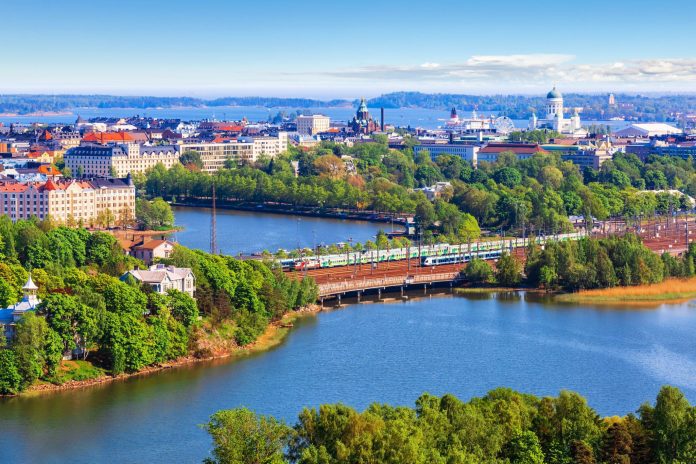Part of a larger EU program, Helsinki smart city projects focus on energy and transportation
Finland’s capital Helsinki, along with two other European cities, have reached a three-year implementation stage in the mySMARTLife smart city development project 2016-2021, which aims to cut energy use by 10% to 20% in the project’s target areas.
The energy use reductions will be realized with commercial-scale smart solutions for buildings, mobility and urban infrastructure.
“Every city involved in the mySMARTLife project develops its own program to achieve the projected cuts,” said mySMARTLife Helsinki Lighthouse Lead Mikko Martikka. The other two cities taking part in the initiative are Hamburg, in Germany and Nantes, France.
The mySMARTLife Helsinki project includes a driverless bus line pilot. In the RobobusLine Helsinki project, the Metropolia University of applied sciences will be experimenting with an autonomous electric minibus. The trial will last three years and will be launched later this year. The main aim of this initiative is to establish a regular and economically viable autonomous bus service integrated with the rest of Helsinki’s public transit fleet.
The city also plans to make energy data gathered by sensors from retrofitted and smart sites available as open data with open APIs in a cloud service to be freely used for the development of new commercial-scale applications.
The open energy data – such as data on building-level real energy consumption, heat losses, and solar and geothermal potential – is visualized on Helsinki’s city-wide intelligent 3D model, which can thus be used to pinpoint upgrades and measure improvement.
The mySMARTLife Lighthouse project is funded under the European Union’s Horizon 2020 research and innovation program.
Vodafone launches water meter project in Nuremberg
In related news, Vodafone Germany has started a test in Nuremberg of its NB-IoT network with the main aim of connecting water meters. The project, which is being carried out in partnership with Diehl Metering, will use the German operator’s mobile network for remote checks of consumption on water meters difficult to access.
Vodafone said that the project is expected to save time and money, as normal checks of such meters require at least two employees. The consumption data is transmitted automatically from the Hybdrus ultrasonic meters to Diehl Metering for analysis with its own software.

